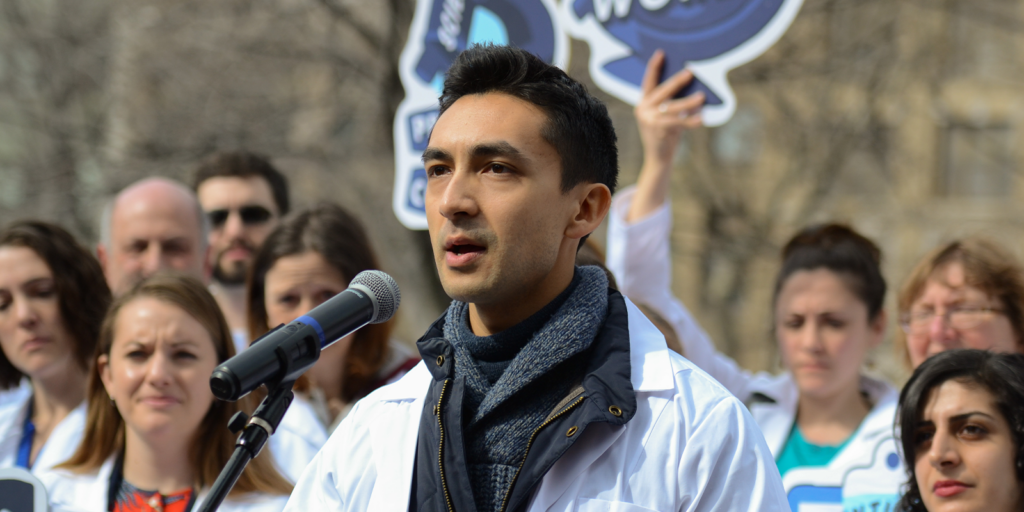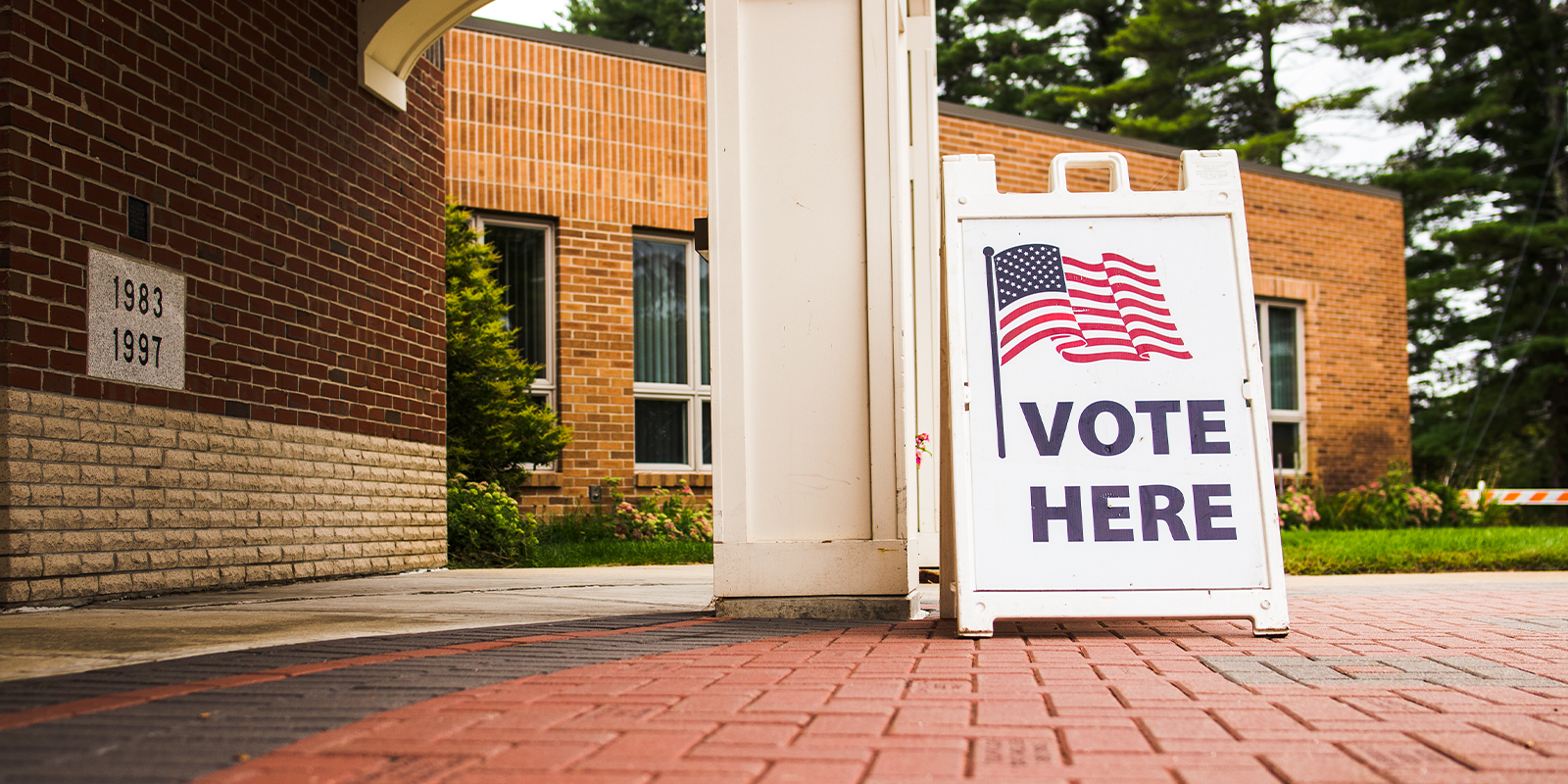Science Rising is a nationwide nonpartisan movement fighting for science, justice, and equity in our democracy.
Science Rising launched in 2018 with a series of actions, events, and activities, mobilized for the 2020 election , and helped drive a surge in STEM voter turnout. In 2022, we created in-depth training resources to help inspire others and turn out the STEM vote in the midterm election. In 2024, we focused on one primary goal: To set a new record for student and STEM voter turnout.
To achieve that, we have rounded up an extensive range of resources specifically designed for students, faculty, and other members of the scientific and academic community.
QUICK LINKS:

These are the core principles of Science Rising
Science should support equity and justice
All too often, the benefits of scientific and technological advances have not been equitably shared. It is not enough to develop solutions that improve health, security, and the environment at a general level; science can and should be applied to reduce racial, social, and economic inequities.
Our health and safety depend on science
We cannot fully protect Americans’ health and safety without access to science. This is especially critical in times of crisis, when access to accurate scientific information has immediate implications for health and well-being.
We all suffer when science becomes partisan
Science is non-partisan and should inform decision making no matter which party is in power. All government officials should be expected to resist the temptation to politicize science or muzzle scientific experts. We must be vigilant to ensure that publicly funded and independent science is never suppressed, censored, or manipulated.
A healthy democracy requires honesty and accountability
Lying to the public for private or political gain is always wrong. We should all be able to know the facts, even when they are inconvenient—especially when they are inconvenient. Public officials and private interests should face consequences when they mislead the public.
The public has a right to know
Taxpayers have a right to access the methodology and results of public research, and to privately funded scientific information that can help keep us safe. The public has a right to access scientific information, especially when the information has implications for public health and safety.
We all need to stand up for science
All of us—not just scientists but also educators, business people, and other concerned individuals—need to speak out when science is ignored, manipulated, or censored. Such actions undermine our democracy, inhibit progress, increase inequity, and lead to decisions that endanger our health and safety. The scientific community can and should foster a culture of science advocacy that encourages scientists and those who want to protect science to engage in their local communities and participate in the policymaking and political process.

Who are we? Partners of Science Rising
Science Rising is a broad-based effort collectively organized and supported by a network of many different participating organizations and individuals. The Union of Concerned Scientists supports and maintains the Science Rising website.
A wide range of organizations have supported Science Rising in ways as diverse as they are. Partners meet regularly as a group to discuss and coordinate current activities, share resources, and build the Science Rising movement.
If you are interested in becoming more involved in Science Rising, please email us at partners@sciencerising.org.
Partners
- 500 Women Scientists
- American Geophysical Union
- Federation of American Scientists
- March for Science
- National Children’s Campaign
- National Science Policy Network
- National Society of Black Engineers Public Policy SIG
- SACNAS (Society for Advancement of Chicanos/Hispanics and Native Americans in Science)
- Scholars Strategy Network
- Science for the People
- Sister
- Students Learn, Students Vote
- Union of Concerned Scientists
- Yale Science Diplomats
Participating Organizations
- ‘This is Public Health’ Campaign
- 350 Sacramento
- 350.org
- 500 Queer Scientists
- AAAS – Caribbean Division
- Action Together Connecticut – New Haven County
- Amazon Watch
- American Atheists
- American Geophysical Union
- American Public Health Association
- American Public Health Association Environmental Justice Committee
- Arizona Youth Climate Strike
- Association of Schools and Programs of Public Health
- Be Social Change
- Better Future Project
- Bloomington Peace Action Coalition
- Boston College Institute for the Study and Promotion of Race and Culture
- Bronfenbrenner Center for Translational Research
- Campus Vote Project
- Cascadia Climate Action
- Catalysts for Science Policy (CaSP)
- Catskill Center for Conservation and Development
- Caveat
- Center for Biological Diversity
- Center for Environmental Politics
- Center for Information & Research on Civic Learning and Engagement (CIRCLE)
- Center for International Environmental Law
- Centerpoint Brewing
- Centers for Disease Control and Prevention
- Central Indiana Science Outreach
- Citizens’ Climate Lobby
- Clean and Healthy NY
- Climate Reality Leadership Corps
- Climate Science Legal Defense Fund
- Commonweal
- Community Alliance with Family Farmers (CAFF)
- Committee for Evidence-Based Action (CEBA)
- Compact20
- Compassionate Living
- Concerned Scientists at IU
- Congo Basin Institute
- Consortium for Affordable Medical Tchnologies (CAMTech)
- Cornell Advancing Science and Policy Cornell Department of Government
- The Cornell Department of Policy Analysis and Management
- CUNY School of Labor and Urban Studies
- Data Refuge
- Declaration for American Democracy
- Defenders of Wildlife
- Earth Charter Indiana
- Earth Justice
- Earth Science Women’s Network (ESWN)
- EarthWays Foundation
- ECOS
- Engaging Scientists and Engineers in Policy (ESEP)
- Engaging Scientists in Policy and Advocacy (ESPA)
- Engineers & Scientists Acting Locally (ESAL)
- Facing History and Ourselves
- Faith in Place
- FASEB – Federation of American Societies for Experimental Biology
- Fletcher Science Diplomacy Club
- Fossil Free California
- Friends of Responsible Agriculture
- Future of Research
- GreenLatinos
- GWU McCourt Energy & Environmental Policy Group
- Harvard Ash Center for Democratic Governance and Innovation
- Health Professions Week
- Healthy Babies Bright Futures
- Hoosier Interfaith Power & Light
- IL Council on Women and Girls
- Illinois Environmental Council
- Indiana Humanities
- Indiana State Museum
- League of Women Voters of Columbia-Boone County (MO)
- League of Women Voters – Eastern Upper Peninsula
- Local First Arizona
- Macaulay Honors College, CUNY
- Maine Conservation Voters
- March for Science Indianapolis
- March for Science Indigenous
- March for Science Minnesota
- March for Science NYC
- March for Science San Francisco
- McDowell Sonoran Conservancy
- Mesa Community College
- Messaging Research Team
- Mid-Missouri Peaceworks
- Missouri Science and Technology (MOST) Policy Fellows
- MIT Day of Action
- Moms Clean Air Force
- MOVE Texas
- Nanotech Alliance
- National Association of Student Personnel Administrators (NASPA)
- National Conference on Citizenship
- National Geographic Society
- New Hampshire Institute for Civics Education
- New York Academy of Sciences
- New York University Office of Postdoctoral Affairs
- North Carolina Campus Connect
- OakSci – Oakland Coalition for Science
- Osage Group Sierra Club
- Pachamama Alliance
- Peoples Climate Movement
- Penn Science Policy & Diplomacy Group
- Philadelphia Science Action
- Physicians for Social Responsibility
- Piedmont Virginia Community College
- Planeteers of Southern Maine
- Port Townsend Marine Science Center
- Project Bridge Colorado
- Public Leadership Education Network (PLEN)
- Qeyno Labs
- Renew Missouri
- RepresentUs Minnesota
- Resident Arts
- ReThink Energy Florida
- Rise Up as 1
- Rutgers University Eagleton Institute of Politics
- Saint Louis University
- Science and Education Policy Association (SEPA)
- Science and Engineering Policy at Caltech (SEPAC)
- Science for the People – Atlanta Chapter
- Science for the People NYC
- Science for the People – University of Michigan Chapter
- Science on Tap
- Science Policy Group at Urbana-Champaign
- SciQ
- SEIU – Local 1000
- Sierra Club
- Smithsonian Institution
- SoCal Science Policy Groups
- Socially Responsible Agriculture Project
- Spirit of Oakland
- SPUR (the San Francisco Bay Area Planning and Urban Research Association)
- Sustain Mizzou
- Tennessee STEAM Festival
- The Civics Center
- The Greenlining Institute
- The Leadership Council on Civic & Human Rights
- The New Georgia Project
- The Penn Program in the Environmental Humanities
- Thomas Hart Benson Sierra Club
- Tom Tom Foundation
- Tidal Town Halls
- UC Berkeley Graduate Assembly
- UC Berkeley Green Initiative Fund
- UC Irvine Climate Solutions
- UCLA Center for Tropical Research
- United Sciences of Chicago
- University of Maryland Graduate Science Policy
- University of Minnesota, The Consortium on Law and Values in Health, Environment & the Life Sciences
- University of Washington
- University of Washington Dept of Political Science
- UW Madison Center for the Study of Liberal Democracy
- Vanguard STEM
- Virginia 21
- Vote Early Day
- Vote Riders
- Vote Safe 2020
- When We All Vote
- Wilderness Society
- Women’s Earth and Climate Action Network (WECAN) International
- Wonder & Skepticism
- Woodstock Land Conservancy
- Yale Law School Environmental Justice Clinic
- Zero Hour
Science Rising does not support or oppose any political party or candidate. The views expressed by our partners are their own and do not constitute the views or position of Science Rising.

